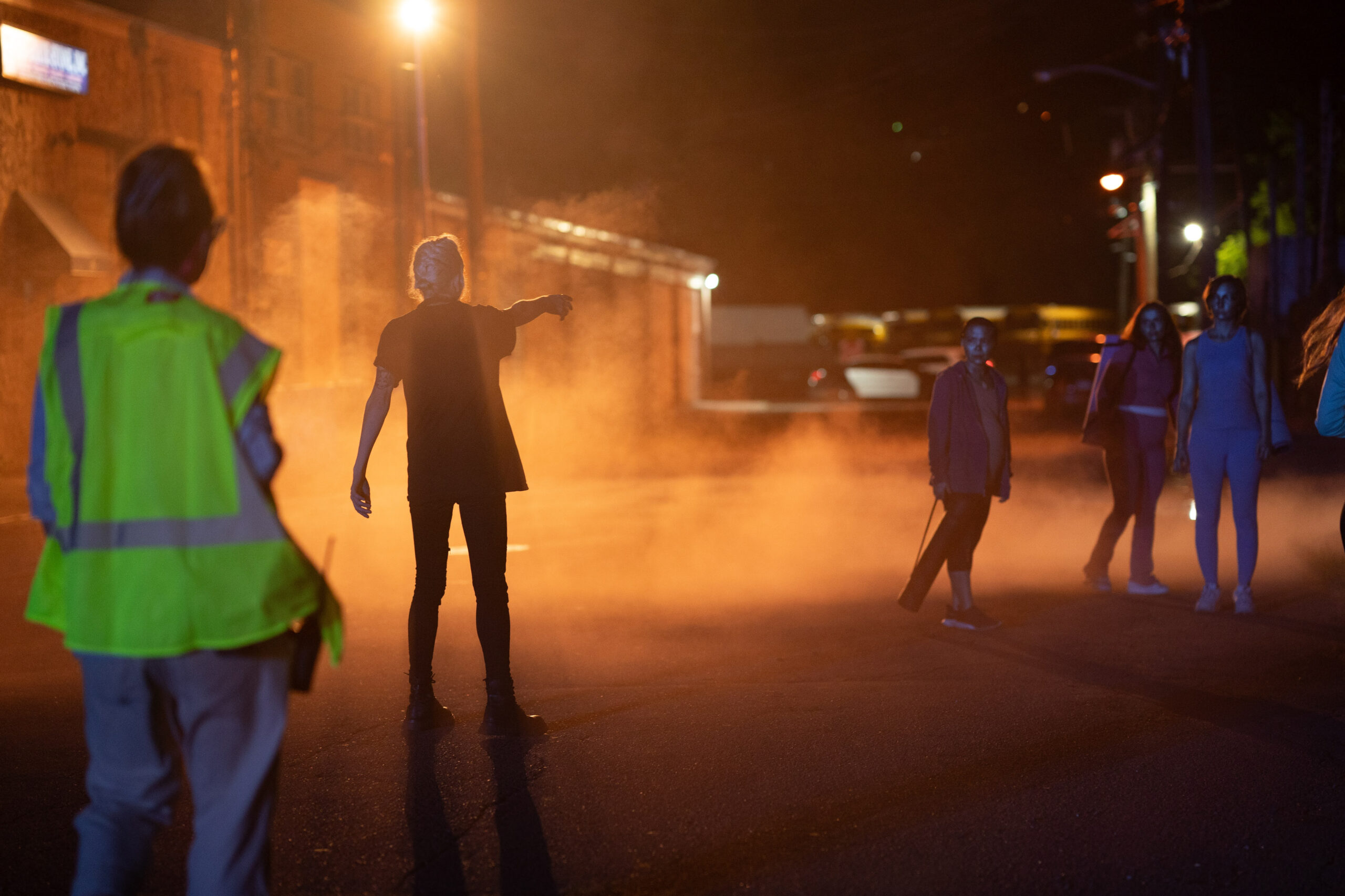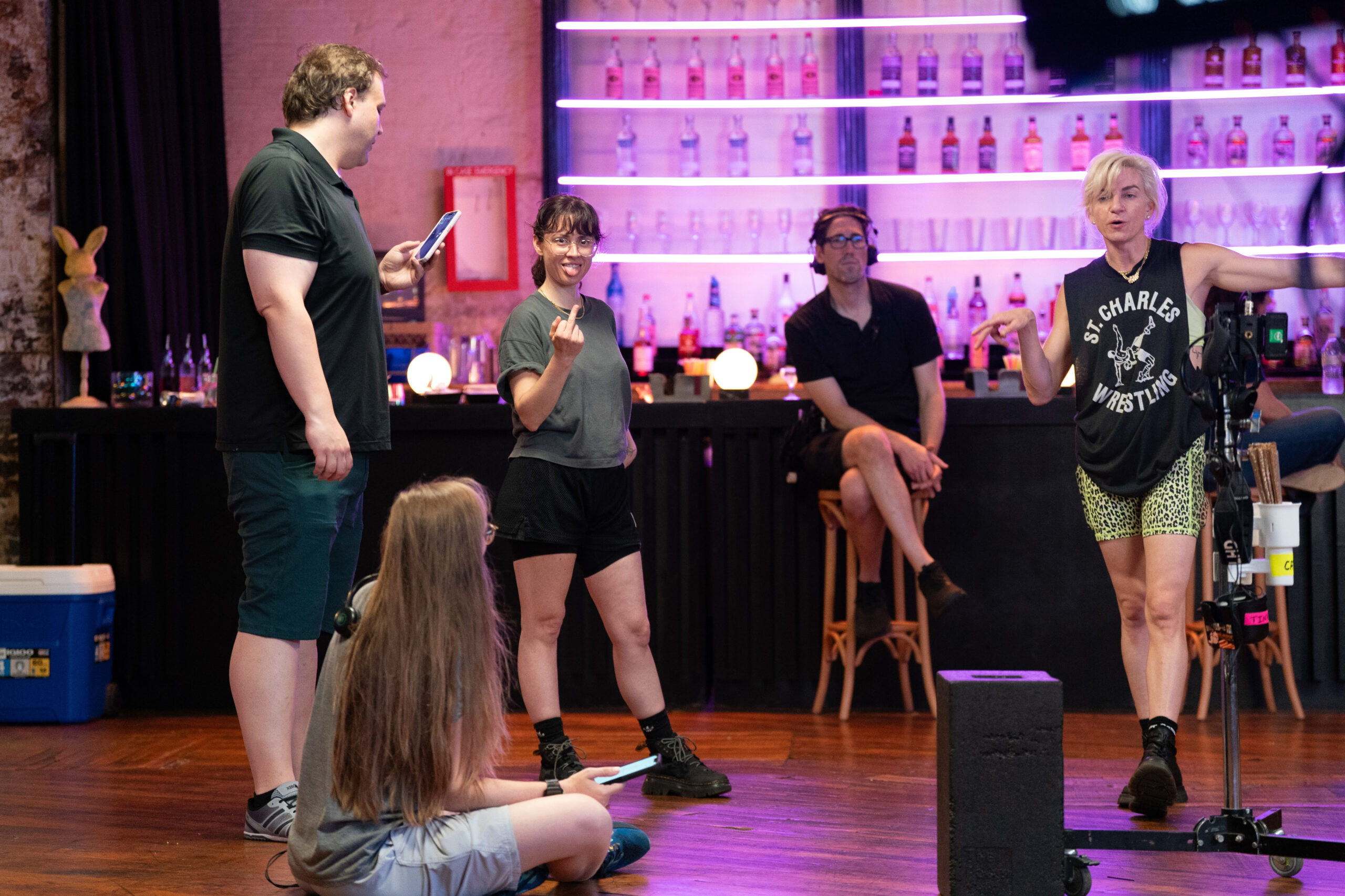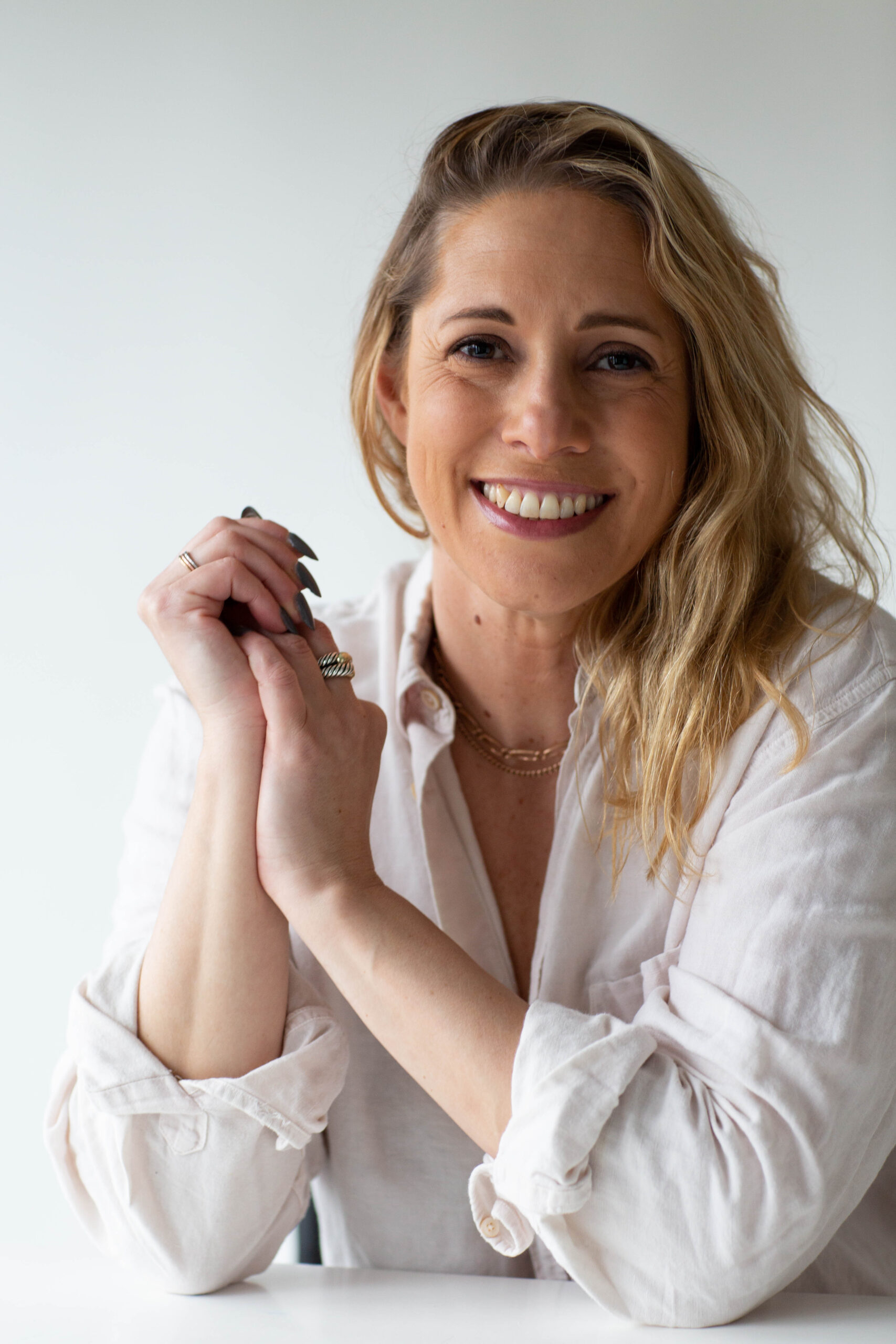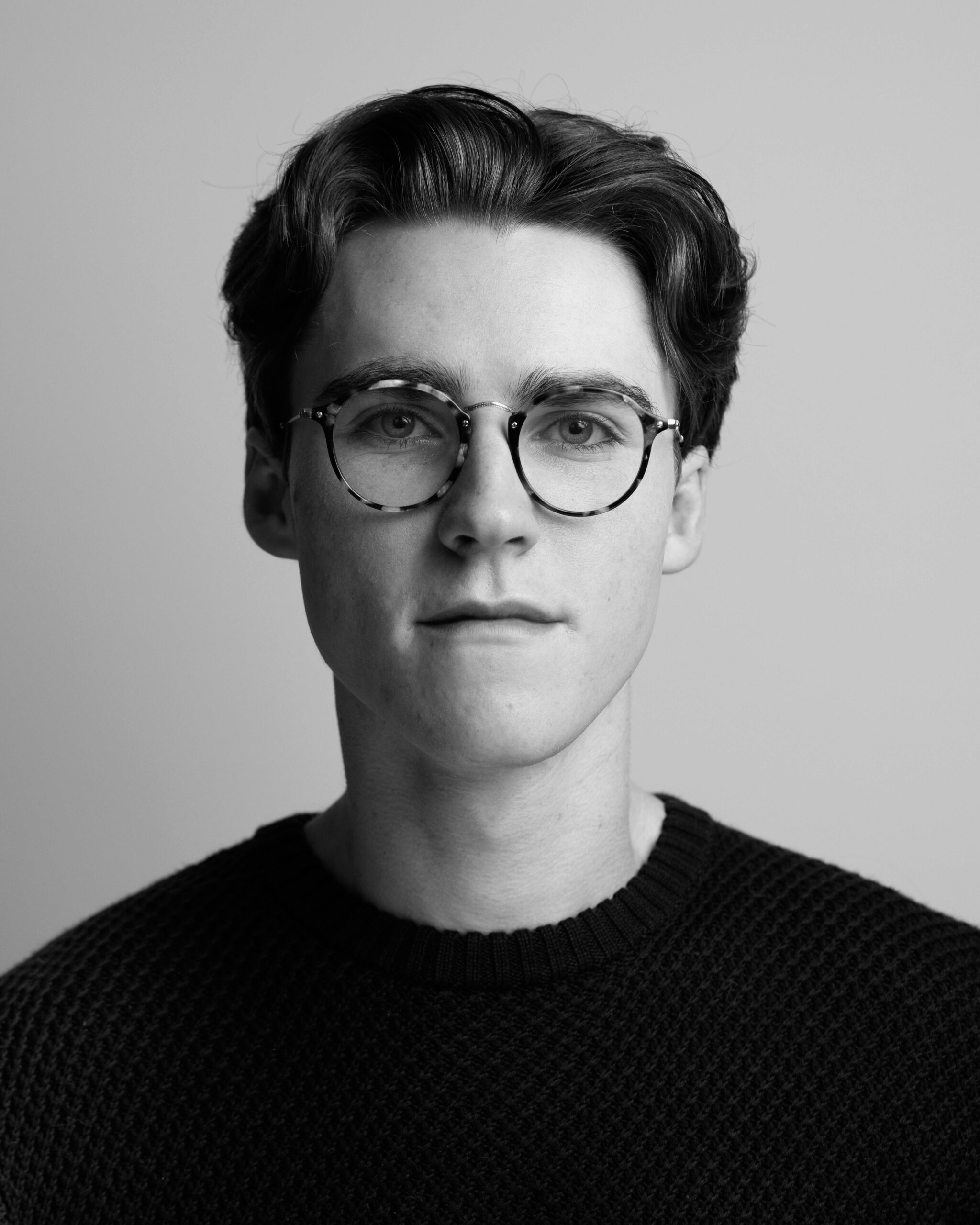Filmmaker Spotlight: Tina Romero (Queens of the Dead)
September 10, 2025
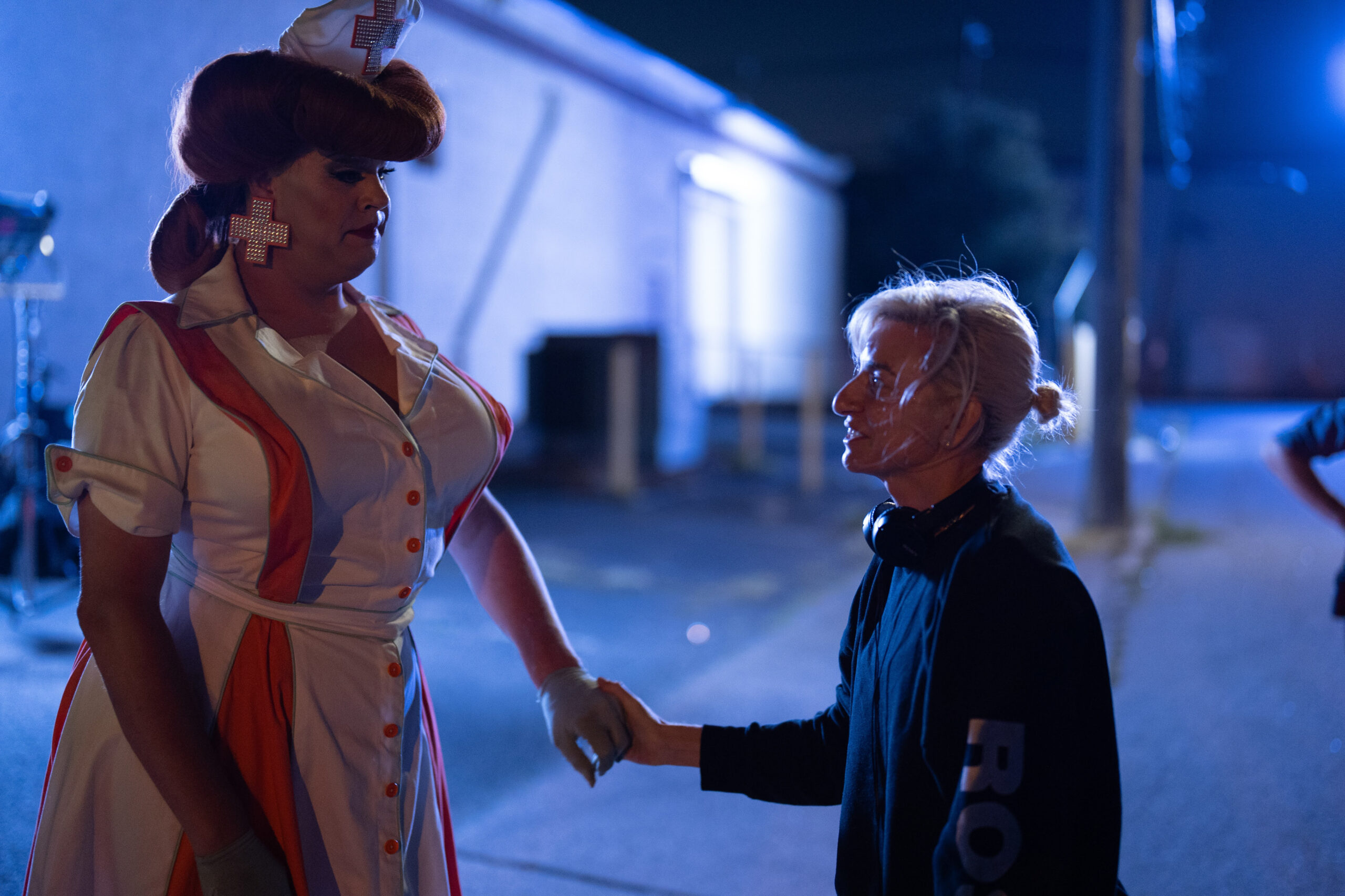
Every year, the Charlotte Film Festival brings bold voices to the screen—but some voices echo off-screen too. In this spotlight, we’re getting to know Tina Romero, whose work caught our eye and stuck with us.
What led you to creating Queens of the Dead?
The inspiration behind this movie is my time spent DJing in the queer NYC nightlife scene, where I’ve met and had the honor of working with the most creative, scrappy, get-it-done, resilient people in the city. It’s a grind to be a gigworker and artist in the city, and its hard to chase your dreams and keep your lights on at the same time. The nightlife space is so full of people with creative passion, stamina and determination. I wanted to tell a story about this world that’s about so much more than great parties; a world that has given me strength, freedom of expression and chosen family.
What were some inspirations going into the creative process?
My collaboration with my brilliant co-worker Erin Judge is really where this project came to life. We spent nearly eight years getting to know our characters, developing story arcs for each of them, jamming and laughing about zombies and nightlife (a world she knows well too, as a longtime standup comedian). Music was also a huge inspiration for me- every project I do usually starts with a playlist, and this was no exception. Some songs that I had on repeat while writing: “I Want You Now” by Liza Minnelli and the Pet Shop Boys (did you KNOW they did an album together?!), “Sacrilege” by the Yeah Yeah Yeah’s, “Your Addiction” by Nightclub and- of course- “The Dead Suite” by John Harrison from DAY OF THE DEAD.
Why is this story important to tell?
Art in a time like this, which feels bleak and heavy and divided, is everything. My wish is that this movie brings people JOY and levity and a sense of hope. The characters centered in this story represent those who, especially in the US in 2025, are under attack and threat of erasure. It feels more important than ever to celebrate them. And while this is very much a film about the full rainbow of the queer community, made by the queer community, I truly believe we’ve created a party that everyone is invited to
How did you become a filmmaker?
My Dad was my biggest inspiration. Of all the things my dad and I did together, what inspired me most was the experience of watching movies with him. My dad would weep when we watched films—not at the sad endings, but at the opening notes of a film score he found perfect, or as the camera swept through the choreography of West Side Story. He showed me that movies can move people, that fictional people can stir real-life empathy, that made-up worlds tell us about the essence of being human. I can’t remember a precise moment of realizing I wanted to be a filmmaker, but I knew even as a child that my goal was to move people.
What do you want your legacy to be as a filmmaker?
I hope to continue my father’s legacy, which I believe to be that it is indeed possible to make movies at all; that with some creativity and some friends, it’s possible to tell wild, ambitious, fantastical stories on a low budget.

 tweet
tweet share
share